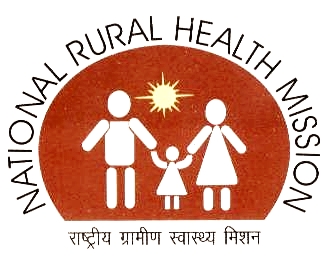The Energy and Resources Institute (TERI) and United Technologies Corporation (UTC) has launched the Center of Excellence for Energy Efficient Buildings in India. The Center has been establishled at a time when the Government of India has introduced the Smart City Programme to address the challenge of rapid urbanization and the efficient use of energy resources.
The Center of Excellence will work towards the development of an energy-use reporting framework for existing buildings, evaluation of the existing building energy rating systems, derivation of tool and techniques for energy management, real time reporting of consumption, and identification and cost benefit analysis of conservation measures.

Dr. R.K. Pachauri, Director General, TERI, in his video message, said: “I am extremely happy that we are launching this initiative… We hope that this will be a model not only for this country but for other countries as well. With UTC, we can work together in bringing about a smarter world and a more sustainable world, particularly as it relates to buildings and habitat design.”
Mr. Zubin Irani, President, Building and Industrial Systems India, UTC, said: “Given the energy challenges faced by the nation, energy efficiency in the buildings sector is an important priority. World over, there has been a rapid pace of innovation when it comes to technologies and systems that go into making a building more energy-efficient and environmentally friendly. It is important to note that not only do many of these technologies reduce the energy footprint of a building or infrastructure project but they also pay back for themselves in a matter of few years.”
“The Center of Excellence shall have a core research agenda on enabling energy efficiency in existing buildings in India. The collaboration between TERI and UTC in this endeavour shall help unlock the potential of energy saving in this sector,“ said Ms Mili Majumdar, Director, Sustainable Habitat, TERI.
Globally, buildings account for 40 per cent of the total energy consumption. By using energy efficient technologies, energy consumption could be reduced by up to 60 per cent. In India, the building sector accounts for approximately 35 per cent of the total energy consumption and is growing at a rate of eight percent annually.
“One of the primary objectives of the UTC- TERI Centre of Excellence is to evaluate energy efficiency and ascertain energy requirements in existing buildings. The findings of the study have the potential of facilitating the new government’s ambitious plan of building 100 smart cities as it will involve upgrading existing cities, expanding and building around them,“ Mr Irani added.
The Center will first conduct a Pan-India study of 100 buildings and is scheduled to cover a wide range of climatic zones, covering cities such as Allahabad, Ajmer, Vishakhapatnam, Varanasi, Delhi-NCR, Mumbai, Chennai, Bengaluru, Kolkata,Hyderabad, Pune, Ahmedabad, Surat, Jaipur etc. These have been selected as per the Smart Cities Programme recently initiated by the Centre.
The study will include an energy survey, derivation of tools and techniques for identification and cost benefit analysis of Energy Conservation Measures (ECMs), calibration and validation of simulation tools, development of Measurement and Verification (M&V) protocol for implementation of ECMs, development of financial mechanism, development of remote monitoring protocol and review and revision of existing building energy standards/codes/rating systems. The initiative is expected to deliver the proposed results within the next five years.
Talking about the future plans of the Centre of Excellence, Mr Irani said: “The ultimate aim of the Centre of Excellence is to enhance the energy efficiency quotient in all buildings across the country. Staying true to this goal, the initial plan of the Centre of Excellence is to identify existing buildings and assess energy use and consumption patterns which would eventually help in base lining the energy performance of buildings with a solid roadmap to make them more energy-efficient.”
A FEW HIGHLIGHTS:
Government of India‘s emphasis on Urbanization and Energy Security:
- The Union Budget of 2014 laid emphasis on infrastructure spending, and allocated $1.1 billion for the creation of 100 Smart Cities with a strong focus on renewable energy.
Smart Cities for an Efficient India:
- In a developing nation like India, the share of energy consumed by buildings and transportation may be well over two-thirds of the country’s entire energy production.
- Given the energy challenges in India, it is of paramount importance that the government relentlessly pursues energy efficiency in all infrastructures.
- This could be accomplished systematically through four key measures: 1) Invest in energy-efficient designs and adopt the latest innovations, 2) Customize technology according to Indian requirements, 3) Introduce energy-efficiency codes and regulation, and 4) develop/ cultivate talent and build capability in this domain.


























